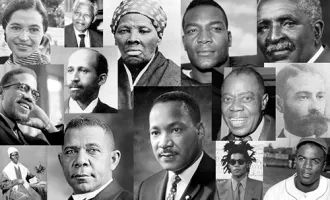
This Date in UCSF History: A Purpose Revisited
Originally published on February 20, 2009. Last month we honored the birth of civil rights leader Dr. Martin Luther King Jr. and witnessed the inauguration of our nation’s first African American president, Barack Obama.
As America changes for the better, the Student National Medical Association, ask the question, “What is Black History month, and is it still necessary?”
Established in 1895, the National Medical Association (NMA) is the oldest and largest organization for African American physicians and health professionals in the United States. Before the NMA was established, the American Medical Association was the governing body that determined the nation’s medical policy.
However, in accordance with Jim Crow segregation, membership was restricted to white physicians. Jim Crow laws also dominated housing, employment, education and all other aspects of medicine. Subsequently, Black physicians and health professionals believed it necessary to establish their own hospitals and medical societies.
“Conceived in no spirit of racial exclusiveness, fostering no ethnic antagonisms, but born out of the exigency of the American environment...” the NMA extended equal rights and privileges to all physicians. It has been at the helm of the fight for better medical care and opportunities for all Americans but focusing on the medically underserved.
We, the Student National Medical Association, Incorporated (SNMA) were born from the NMA. SNMA is focused on the needs and concerns of medical students of color.
The organization was established in 1964 by students at Howard University’s and Meharry’s Colleges of Medicine. Like the NMA, our mission is to “advance the art and science of medicine for people of African descent through education, advocacy, and health policy to promote health and wellness, eliminate health disparities, and sustain physician viability.”
So, back to the question: is Black History Month still necessary?
This has been a source of much debate and controversy, perhaps ever since its inception by Carter G. Woodson in 1926. Woodson, an African American historian with a PhD from Harvard, initially dubbed it, “Negro History Week” and picked February in order to commemorate the birthdays of two men prolific in the black struggle, Abraham Lincoln (February 12) and Fredrick Douglass (February 14). But what really is the purpose of Black History Month?
The majority of us are most likely only aware of Black History Month as students. It is the month in school where we commemorate Fredrick Douglass, Booker T. Washington, Harriet Tubman, Sojourner Truth, Rosa Parks, Thurgood Marshall, and Martin Luther King Jr.
We learn about the slave trade, the Underground Railroad, the Emancipation Proclamation, Jim Crow, and the civil rights era. Black History Month is a month of education and awareness, a time to commemorate leaders and significant figures in this black history.
It is celebratory and it is triumphant, but it is also a remembrance of past injustices and a reminder of current ones.
Although Black History Month has American origins, an increasing global community and expanding African diaspora have blurred the lines of “blackness” and Black history has been forced to adopt a new definition.
The contributions of the African Diaspora have pervaded all aspects of life from art and science to civics and politics and must not be overlooked; for they represent a history of social justice, optimism for the future, and for my shameless Obama plug, the beauty and benefit of diversity.
So, in addition to peanut butter and stop signs, Harriet Tubman and Langston Hughes, we must remember the many global contributions that have been made, and add reggae, capoeira, Nelson Mandela and Chinua Achebe to the list.
Black History is not just our history, it is world history.
It reflects adaptability to ever-changing environments, staunch resilience to social injustice, and a relentless will to triumph in the face of adversity; all of which give us a foundation and valuable perspective through which we can address contemporary social issues, both domestic and abroad.
We urge you to join us as we honor and explore the spectrum of “blackness” in our immediate and global community.



